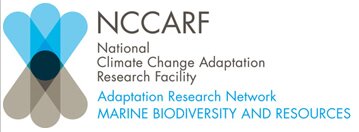|
National (Australia)
National
Adapting to Climate Change (from DCCEE) sets out the Government’s vision for adapting to the impacts of climate change and proposes practical steps to realise that vision.
Australian Government Department of Climate Change & Energy Efficiency (DCCEE) is delivering the Australian Government’s climate change framework.
Australian Government Department of the Environment, Water, Heritage and the Arts is responsible for implementing the Australian Government’s policies to protect our environment and heritage, and to promote a sustainable way of life.
Australian Heritage Council is the principal adviser to the Australian Government on heritage matters.
Australian Bureau of Meterology is Australia’s national weather, climate and water agency.
Australian Government Department of Resources, Energy and Tourism provides advice and policy support to the Australian Government regarding Australia’s resources, energy and tourism sectors.
Australian Fisheries Management Authority (AFMA) is the Australian Government agency responsible for the efficient management and sustainable use of Commonwealth fish resources on behalf of the Australian community.
Australian Maritime Safety Authority is a largely self-funded government agency with the charter of enhancing efficiency in the delivery of safety and other services to the Australian maritime industry.
Australian Coral Reef Society promotes scientific research on Australian coral reefs.
Australian Marine Sciences Association (AMSA) is Australia’s major professional association for marine scientists from all disciplines advancing marine science and its understanding in Australia.
Australian Society for Fish Biology is a professional, independent, non-profit, and non-aligned organisation promoting research, education and management of fish and fisheries in Australia and providing a forum for the exchange of information.
Australian Research Council Research Network for Earth System Science (ARCNESS) links individuals and groups within Australia to explore the interaction between the oceans, atmosphere, biosphere and cryosphere.
Australian Meteorological and Oceanographic Society is an independent Australian society that supports and fosters interest in meteorology, oceanography and other related sciences.
CERF Marine Biodiversity Research Hub focusing more specifically on biodiversity and improving research delivery to the Australian Government, other end-users and stakeholders.
CERF Environmental Economics Hub addresses Australia’s major environmental management challenges with integrated economic research that provides immediate and continuing policy impacts.
Clean Energy Future is the Australian Government’s comprehensive plan for securing a clean energy future.
Climate Institute is a non-partisan, independent research organisation that works with community, business and government to catalyse and drive the change and innovation needed for a low pollution economy and culture.
CSIRO Climate Adaptation Flagship scientists are studying how climate change will affect Australia’s oceans, and developing adaptation options to respond to these challenges.
CSIRO Wealth from Oceans Flagship are scientific leaders in understanding ocean systems, processes and technologies taking a whole-of-system approach that recognises the world’s many borders share just one ocean.
CSIRO Marine and Atmospheric Research (CMAR) focuses on issues affecting Australia and the world, providing a range of scientific and consulting services that are underpinned by research.
Integrated Marine Observing System (IMOS) has deployed a range of observing equipment in the oceans around Australia, making all of the data freely and openly available through the IMOS Ocean Portal for the benefit of Australian marine and climate science as a whole.
National Aquaculture Council
National Climate Change Adaptation Research Facility (NCCARF) leading the research community in a national interdisciplinary effort to generate the information needed by decision-makers in government and in vulnerable sectors and communities to manage the risks of climate change impacts. Read More>
International
French Research Institute for Exploitation of the Sea (IFREMER) is one of the most integrated marine research institutes with the broadest range of skills and expertise worldwide. Underwater technologies, biodiversity, fisheries science and aquaculture, coastal environments, mineral resources, bio technologies and operational oceanography are all part of its research missions and its areas of skill and excellence.
Intergovernmental Oceanographic Commission promotes international cooperation and coordinates programes in marine research, services, observation systems, hazard mitigation and capacity development in order to learn more and better manage the nature and resources of the ocean and coastal areas.
Intergovernmental Panel on Climate Change (IPCC) is the leading international body for the assessment of climate change to provide the world with a clear scientific view on the current state of knowledge in climate change and its potential environmental and socio-economic impacts.
NOAA Coastal Services Mapping: Benthic Habitat Mapping provides technical guidance to data developers working to produce digital spatial data on benthic habitat.
Ocean Management Research Network creates and share knowledge for the application of critical thinking and best practices to oceans management in Canada.
Tyndall Centre for Climate Change Research brings together scientists, economists, engineers and social scientists who are working to develop sustainable responses to climate change and work not just within the research community, but also with business leaders, policy advisors, the media and the public in general.
Climate Skeptic author is Warren Meyer. He originally started the site to help report climate developments in layman’s terms, particularly the science of the skeptic’s position.
Climate Institute informs key decision-makers, heightens international awareness of climate change, and identifies practical ways of achieving significant emissions reductions.
Dr Michael MacCracken, one of the world’s highly regarded atmospheric scientists, has been Chief Scientist for Climate Change Programs with the Climate Institute in Washington DC since 2002. He has extensive experience not only on climate science issues but also on issues involving air quality.
Climate Lab develops web-based tools for knowledge sharing and collaboration to enable individuals and organisations to take wiser, more effective actions to help address climate change.
Adaptation to Climate Change Toolkit: Coasts
The Adaptation to Climate Change Toolkit: Coasts is a series of tools and resources aimed at anyone with an interest in climate change adaptation for marine turtle habitats, including coastal managers, conservation practitioners, scientists and educators. Read an article in the Summer 2011/12 MAB - page three, by Dr Marianne Fish - Marine & Coastal Adaptation Leader for World Wildlife Fund (WWF) Latin America and the Carribean.
United Nations Environment Programme (UNEP) - Climate Change Adaptation helps developing countries to reduce vulnerabilities and build resilience to the impacts of climate change. The work is guided by and contributes to the Nairobi Work Programme on Impacts, Vulnerability and Adaptation.
Educational
A students Guide to Global Climate Change developed by the Environmental Protection Agency (EPA) helps provide students (and educators!) with clear, accurate information about the causes and effects of climate change—as well as steps to help solve the problem.
The Climate Bathtub Simulation lets you decide the future of the planet. Water in a bathtub is used to represent CO2 in the atmosphere. Can you keep the bathtub from overflowing?
Climate Momentum Simulation presents interactive, accessible computer simulations that help people visualise the long-term climate impacts of decisions being undertaken today.
Coastal Collaboration Cluster is designed to assist coastal organisations in becoming adaptive learning organisations.
NOAA Education: Ocean & Coasts provides items designed for teachers to use in the classroom or as background reference material.
El Niño Theme Page provides access to distributed information on El Niño.
Bridge Ocean Education Teacher Resource Centre is a growing collection of marine education resources available on-line. It provides educators with a convenient source of accurate and useful information on global, national, and regional marine science topics, and gives researchers a contact point for educational outreach.
Marine Discovery Centres Australia (MDCA) comprises of 12 centres around Australia, dedicated to the key issues relating to marine and coastal environment conservation. Use this link to access each of the unique learning centres in each state.
Scientific Visualisation Studio - Perpetual Ocean is presented by the Goddard Space Flight Centre - NASA, and shows ocean surface currents around the world during the period from June 2005 through to December 2007.
|


